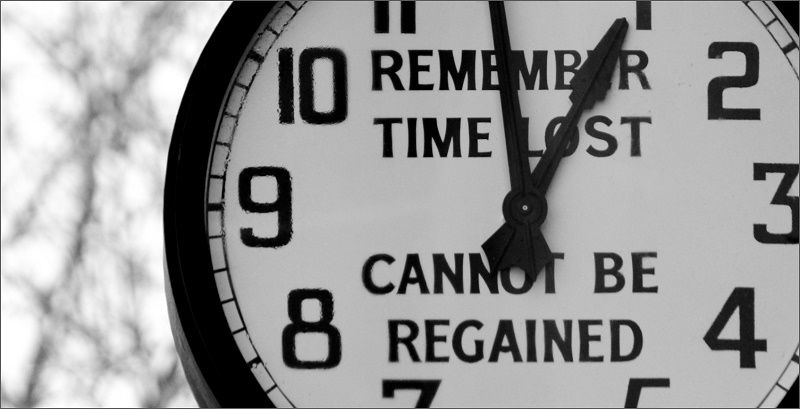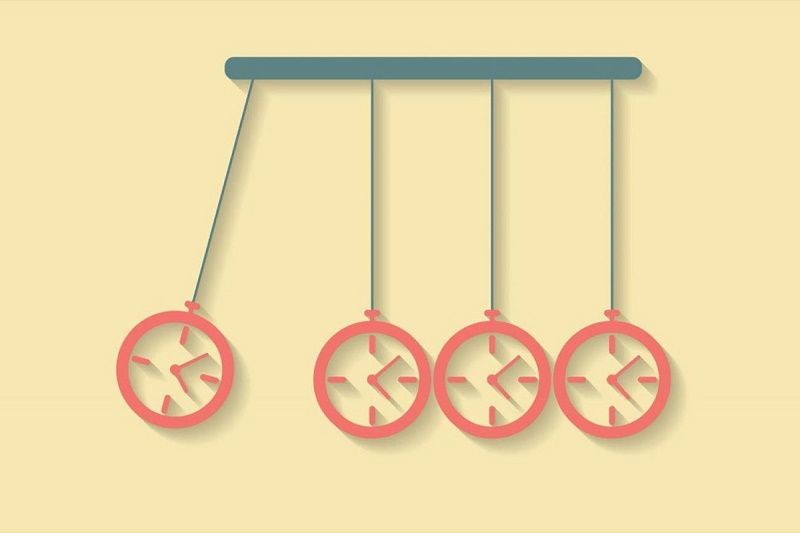
How much do you procrastinate? Learn how to stop it
Tranquility. It is not so strange. It happens to all of us. We have to do something, and we say to ourselves phrases such as ” I do it later ” or ” for tomorrow,” the ” is not so urgent,” ” it is not so important to do it now ” or “I can do it much more easily later.” Then we are dedicated to doing anything else of less importance. It provides us with some immediate well-being compared to the alternative of moving forward with what we had initially thought how to stop procrastinating.
That means we do not get to do the initial and important task ” later.” We tend to be experts in doing it at the last minute, when there is no other choice, perhaps seasoned with nerves, panic and a certain feeling of guilt. And on many occasions, when we observe that the result has not been as good as it should be, we have the thought that if we had done it more calmly and with better use of time, things would have gone better.
How to stop procrastinating?
A new word is imposed to describe the situation explained above: procrastination. Almost certainly we all have a procrastinator inside us, who will try in many moments not to let us move forward and the consequence will be that we are less productive, both personally and professionally. Let’s think about it for a moment: the less we like a task, the easier it is for us to procrastinate.
The problem of procrastination is that it may appear in those who practice it a feeling of guilt since they know that they are doing “other things” to ignore others for which they are responsible. This feeling of guilt makes him live with anxiety, and he may have the feeling that he is not taking care of his life.
A procrastinator usually talks about everything he’s going to do, and in the end, he does “nothing” or “almost nothing.” It’s like a dreamer who imagines what he’s going to do and the results he’s going to get. Planning without action does not mean achieving something and is very unproductive. If the procrastinator makes a list of tasks to be done, he will probably choose nice and comfortable things to do first and leave for “after” the important ones. That is why many experts are recommending not planning but simply doing. And minimally reward the achievement of the result between homework and homework is also usually a good push to keep doing (a few minutes of relaxation, a coffee).
It seems that there is a scientific basis in the tendency shown by humans to procrastinate. Numerous researchers study why and what it is that leads us to postpone the things that matter.
His conclusions have been the following:
At the University of Colorado, they have discovered that there is a correlation between impulsive and procrastinating people. An impulsive person tends to be easily distracted by everything that seems more fun in the short term, delaying the implementation of their goals for later. They also conclude in their study that some people are genetically predisposed to delay tasks.
Delaying tasks, in the short term, gives us a very pleasant feeling. There is a minimal amount of dopamine that goes directly to the brain and causes that sensation. It is one more reason why humans tend to procrastinate.
According to Carleton University studies, the process of making a decision is voluntary. If we are not focused enough on this action, the limbic system takes over the situation and makes us let ourselves be dragged by what pleases us the most.
At the University of Utrecht, they have linked problems of self-control with procrastination. As a curiosity, they have determined that the person who procrastinates the most, falling into temptations to delay tasks, usually delays even the moment of going to bed to sleep.
Experts say that the solution to procrastination is ourselves. The tendency to delay tasks usually comes from negative feelings we have towards the task that we decided not to do yet. The reasons may be intimidation, fear of failure or lack of motivation and passion for carrying it out. That makes us try to look the other way. Therefore, to stop procrastinating, what we must do is learn to make decisions and act.
Possible strategies to control our tendency to procrastinate could be:
- If what you have to do lasts up to two minutes, do not plan. Just do it.
- Once we have achieved this milestone, we can progressively do the same with tasks lasting up to ten minutes.
- When we start doing something that gives us fear, we overcome it. We can start a task of this type, be with it a time of about 5 minutes and stop. We will see that we have overcome that barrier.
- After those minutes, resume the task. We will see that the hardness has decreased to a high degree.
- It is good to write down what we do every day and write down what it costs us. It commits to “do” increase. Also, establishing daily routines also helps, since it generates habit.
- We have to manage our energy and not so much our time. Also, if there are commitments that we do not want to acquire, we have to learn to say no.
- Dividing tasks into smaller parts, trying to make them fun to do and giving rewards for carrying them out helps a lot in generating the habit of doing and eliminating delaying.
- Telling your achievements to others also helps. On the one hand, increase your commitment, and on the other, you can receive “small satisfactory premises from the outside.”
Much encouragement if you want to improve personally and professionally Learn how to stop procrastinating!










